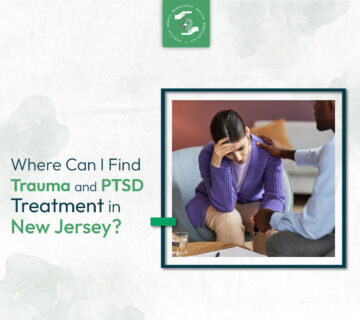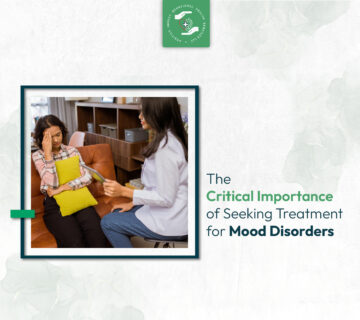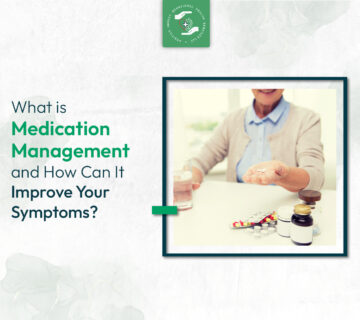Attention-Deficit/Hyperactivity Disorder (ADHD) is often thought of as a childhood condition, but it can continue into adulthood and impact many areas of life, including relationships, work performance, and emotional well-being. Many adults live with undiagnosed ADHD for years, only realizing much later in life why certain challenges have persisted despite their efforts. At Positive Impact Behavioral Health Services in New Jersey, we are dedicated to helping adults understand their symptoms and receive the right support through evidence-based care and compassion.
Understanding ADHD in Adults
ADHD is a neurodevelopmental disorder that affects focus, impulse control, and activity levels. While symptoms are commonly recognized in children, adults can also experience them, often in more subtle or different ways.
Common signs of ADHD in adults include:
- Difficulty staying organized and meeting deadlines
- Frequent forgetfulness or misplacing items
- Struggling to prioritize tasks
- Restlessness or feeling unable to relax
- Impulsive decision-making
- Trouble maintaining focus during conversations or meetings
- Emotional challenges such as frustration, mood swings, or anxiety
Unlike children, adults with ADHD may not appear hyperactive. Instead, they may seem constantly distracted, overwhelmed by daily responsibilities, or frustrated by their inability to stay consistent in work and personal life.
Why ADHD is Often Missed in Adults
One reason ADHD in adults often goes unnoticed is that many people develop coping strategies to mask their symptoms. For example, someone may rely on strict schedules, reminders, or constant multitasking to manage daily tasks. Others may be mislabeled as simply “disorganized” or “unmotivated,” when in reality, an underlying condition is contributing to these struggles.
At Positive Impact Behavioral Health in New Jersey, we emphasize that ADHD is not a reflection of laziness or lack of intelligence. It is a medical condition that requires proper evaluation and personalized treatment.
How ADHD is Diagnosed in Adults
A proper adult ADHD diagnosis requires a comprehensive evaluation. At our clinic, Dr. Martins Akhibi and the team use a structured process that may include:
- Clinical Interview: A detailed discussion about symptoms, personal history, and daily challenges.
- Behavioral Assessments: Questionnaires or standardized tools to identify ADHD patterns.
- Medical and Psychiatric Review: Evaluating other conditions such as anxiety, depression, or trauma that may overlap with ADHD.
- Family or Work Feedback: With patient consent, gathering insights from close relatives or colleagues can help understand how symptoms appear in daily life.
The goal is to differentiate ADHD from other conditions and create a clear treatment plan tailored to the individual.
Treatment Options for Adult ADHD
The good news is that ADHD is highly treatable. With the right approach, adults can manage symptoms effectively and improve their quality of life. At Positive Impact Behavioral Health Services in New Jersey, we offer personalized ADHD disorder treatment that blends different evidence-based approaches.
1. Medication Management
For many adults, ADHD medication can be a crucial part of treatment. Stimulant and non-stimulant medications help regulate brain chemicals involved in focus and impulse control. Dr. Akhibi carefully evaluates each patient’s needs, medical history, and potential side effects before recommending a medication plan.
2. Behavioral Therapy for ADHD
Medication alone is often not enough. Behavioral therapy for ADHD helps adults develop practical skills to manage daily life. This may include:
- Learning organizational strategies
- Time management techniques
- Improving emotional regulation
- Setting realistic goals
- Building healthy routines
Cognitive-Behavioral Therapy (CBT) is particularly effective in addressing negative thought patterns and improving self-confidence.
3. Lifestyle and Holistic Approaches
ADHD management also benefits from lifestyle adjustments, including:
- Regular exercise to improve concentration and mood
- Balanced nutrition to support brain health
- Mindfulness or meditation to reduce impulsivity
- Consistent sleep schedules to boost focus and energy
At our practice, we take a holistic approach, ensuring that treatment plans align with the patient’s overall health and well-being.
Living with ADHD as an Adult
Receiving a diagnosis of ADHD in adulthood can be both eye-opening and relieving. It helps explain years of struggles and provides a pathway toward effective treatment. Many patients report that with proper support, they not only gain better focus and organization but also rebuild confidence in themselves.
The journey may take time, but the right combination of ADHD disorder treatment in New Jersey, therapy, and lifestyle support can lead to lasting improvements in work performance, relationships, and emotional balance.
Why Choose Positive Impact Behavioral Health Services
At Positive Impact Behavioral Health, we believe that every patient deserves care that is compassionate, individualized, and based on the latest research. Dr. Martins Akhibi, DNP, PMHNP-BC, brings years of clinical experience in diagnosing and treating ADHD and other mental health conditions. His patient-centered approach emphasizes trust, cultural sensitivity, and holistic healing.
Our mission is to ensure that adults living with ADHD do not walk through this journey alone. We partner with our patients to provide the tools, strategies, and support they need to thrive.
Final Thoughts
ADHD in adults is real, common, and treatable. If you recognize the signs of ADHD in adults-such as chronic disorganization, forgetfulness, or difficulty focusing-know that effective help is available. With accurate diagnosis, personalized treatment, and consistent support, it is possible to regain control, build healthier habits, and experience meaningful improvements in daily life.
If you or a loved one are seeking ADHD disorder treatment in New Jersey, contact Positive Impact Behavioral Health Services today. We are here to help you take the first step toward greater clarity, focus, and emotional well-being.




